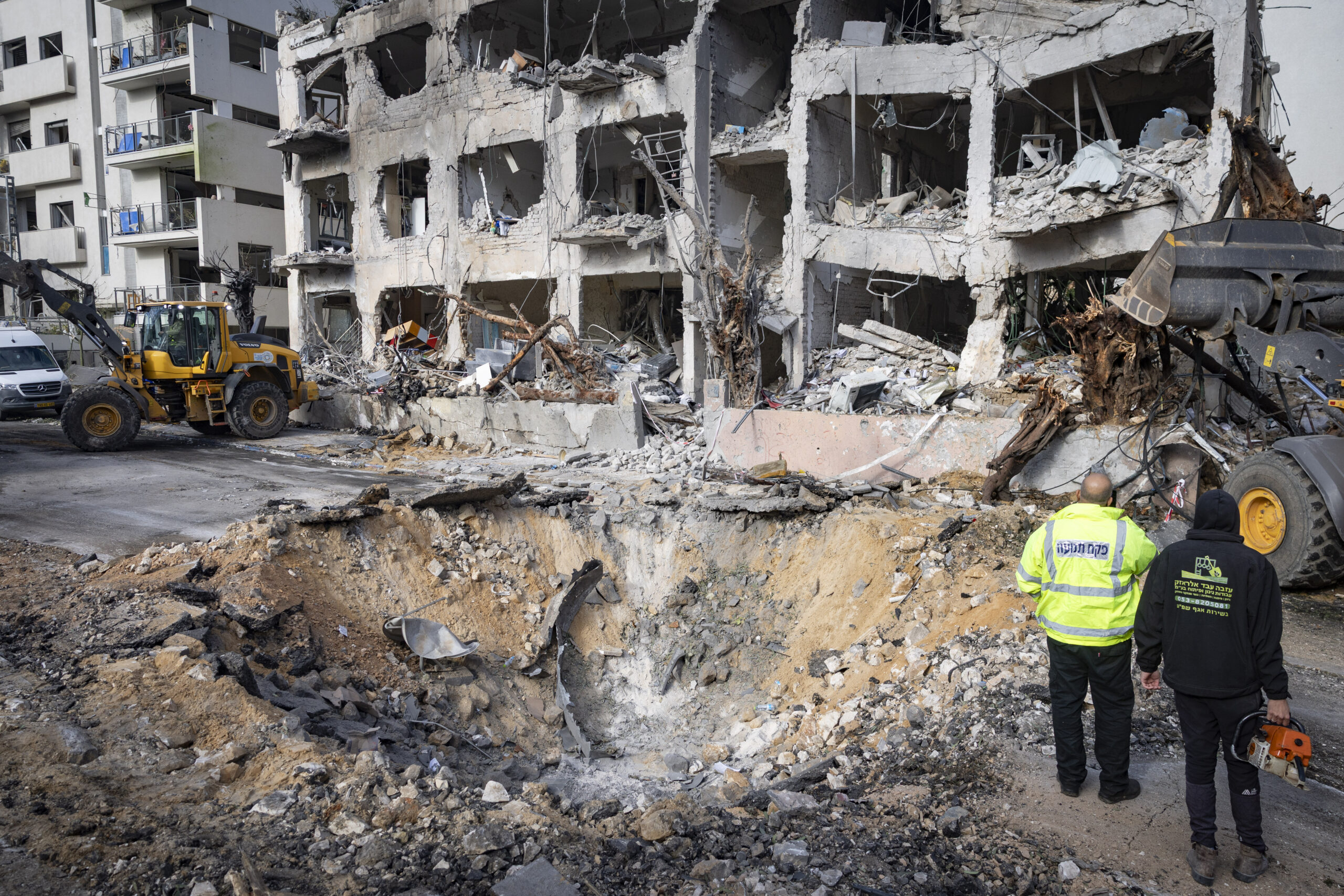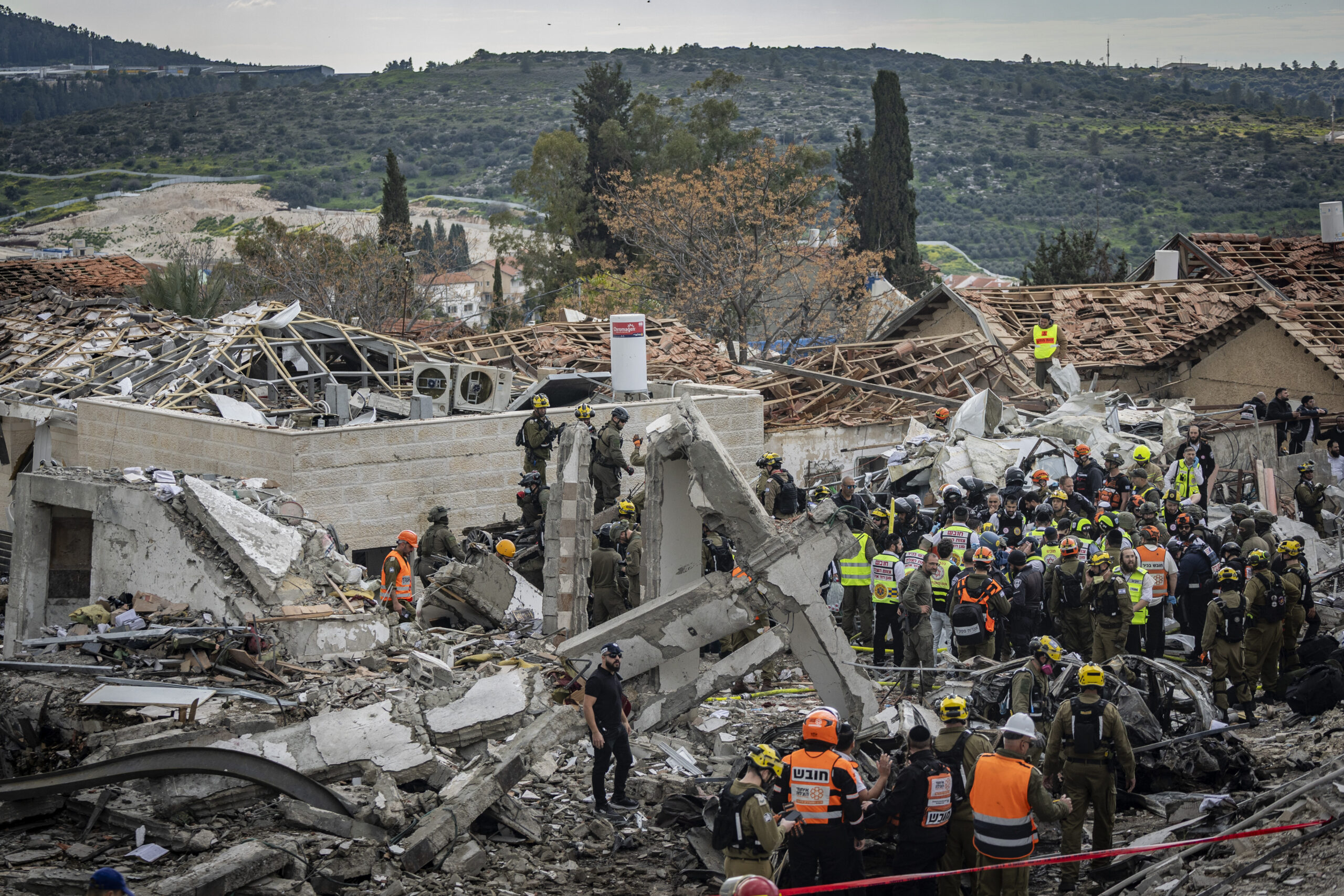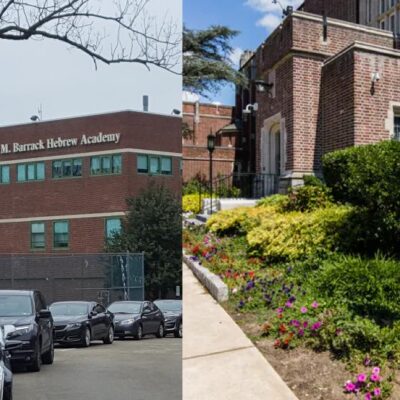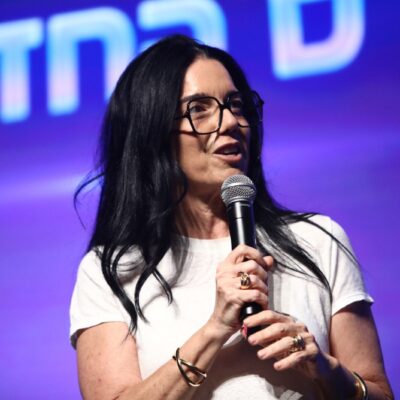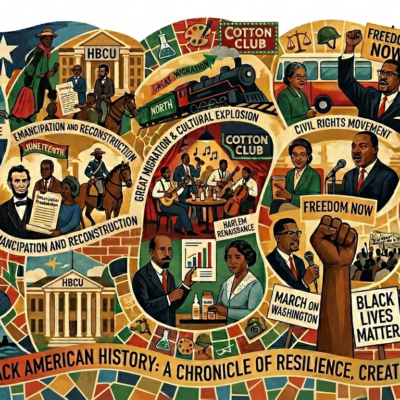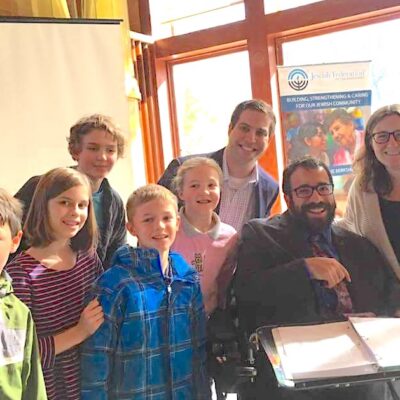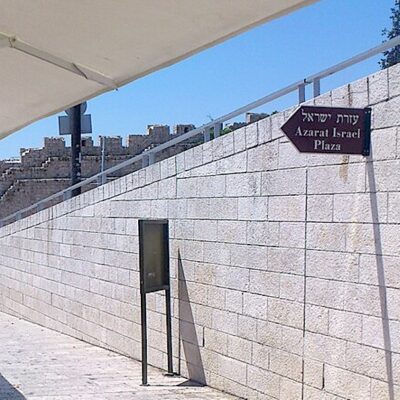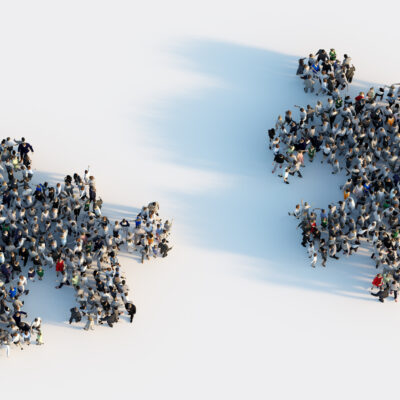In Poland, Jewish Identity isn’t Because of the Holocaust – but Despite It
By Marisa Fox-Bevilacqua
Krakow – The six clarinets, three percussionists, horn players, fiddlers, bassists, guitarists and singers were whipping the hordes into a whirling dervish. Their unabashedly joyous, sometimes harmonious, often cacophonous and always rhythmic brew had turned Szeroka Square into a mass of clapping hands and dancing feet.
Where exactly had I landed – Coachella? The gospel tent at a Jazz fest? An outdoor concert in Williamsburg, Brooklyn, right on Broadway, so the Chassids and the hipsters can comingle?
Before I knew it, a young Sinead O’Connor lookalike grabbed me by the arm and thrust me into a frenzied circle of 20-something revelers dancing the hora.
Welcome to Szalom Szeroka, the grand finale concert of Krakow’s 10-day Jewish Culture Festival, which just celebrated its 25th year and drew its largest crowds yet, attracting 22,000 fans to its quaint Jewish quarter known as Kazimierz.
“It’s the highlight of our summer,” says Krakow native Zofia Radzikowska, “something we look forward to all year. It’s become part of our life.”
To the 80-year-old Radzikowska, who survived the Holocaust as a hidden child, the festival symbolizes the restoration and reinvention of a legacy she at turns was able to embrace, but mostly conceal.
“People don’t realize there has always been Jewish life here,” says Radzikowska, a retired lawyer/professor at Jagiellonian University/Krakow politician and activist, who was part of Solidarity and is now a vital member of the JCC in Krakow. “After the war, I studied at a Tarbut school here and though I wanted to make aliyah, I was too little and somehow I never left. Most Jewish tourists go to the death camps when they come here. But we don’t go from death camp to death camp. There is Jewish life here, and while it’s important to remember the past, we also have to live for the future.”
Nowhere in the world is Jewish culture fraught with so much poignancy and contradiction than in Krakow. “We feel the presence of the absence here very strongly,” says Katke Reszke, a New York-based Jewish historian, writer and documentarian, who grew up in Wroclaw, Poland, went through a ritual conversion before discovering she had been Halachically Jewish all along, received her PhD at the Hebrew University of Jerusalem, and is the author of “The Return of the Jew: Identity Narratives of the Third Post-Holocaust Generation of Jews in Poland.”
“It drives you to observance because everyone counts in a minyan here. I’m not generally religious, but I would say, I feel most Jewish when I’m here in Poland.”
And that’s exactly why the festival is “a very deep and genuine exploration of what it means to be Jewish,” says Shmuel Afek, a teacher at the Abraham Joshua Heschel School in New York, who came to Krakow for the festivities and myriad other seminars that dovetail on it, such as Centropa Summer Academy. That it attracts a mix of academics from around the world, as well as mostly non-Jewish Poles, is exactly the point.
Or as Lucy Les, co-owner of the Jarden Bookstore, the first and foremost business in Kazimierz catering to those interested in Jewish history and culture, puts it: “This festival is for the Polish people because we need to know about Jewish culture, because it was born here and it’s part of our history, too. We need to keep it alive.”
Though not all Poles feel the sense the obligation Les does, it’s precisely that dual sense of ownership that has turned the festival into the loudest, proudest demonstration of Hebrew heritage on the planet. Not bad for a country that still ranks high in anti-Semitic attitudes, according to an Anti-Defamation League survey.
“Have you ever seen such a thing?” asked the Polish-born Sigmund Rolat, the American Jewish philanthropist who is one of the festival’s main funders, enjoying the concert from his yearly party at a corner suite in the Ester Hotel overlooking the main stage.
Indeed, I hadn’t.
If someone had told me a few years ago that I’d spend a night raving to nouvelle klezmer – or whatever you would call the funky hybrid of Israeli, cantorial and Yiddish music produced the likes of Shlomo Bar, the Klezmatics, Shai Tsabari Future Orchestra, Lola Marsh and Bemet – with mostly non-Jewish Poles in the crowd, grooving in a cobblestone square less than an hour away from Auschwitz, I would have laughed in his or her face. But that’s exactly what I did.
And not even sweltering heat could contain the eclectic array of singers, horn players and guitarists from streaming onstage like random session musicians at a James Brown show, or could deter the thousands of fans from flocking to private parties on rooftops, in hotel suites, in sidewalk cafes and local pubs. It was nearly 2 A.M. when the rapture came to a halt, sending sighs echoing through the old Jewish quarter, which dates back to the Middle Ages and is named after King Kazimierz the Great, who created a safe haven for Jews here by the Vistula River when they were being expelled from major cities throughout Europe and where Jewish culture flourished for many centuries.
“Kazimierz is the only genuinely Jewish neighborhood to survive the Holocaust,” says Konstanty Gebert, a Warsaw native, foremost journalist with Gazeta Wyborcza, founding member of the Flying University – a secret institution of higher learning of topics forbidden by the Communist government – and Jewish activist in Poland, author of “Living in the Land of Ashes.”
“Warsaw also tried to have a festival like this one, but the city was all bombed out and had to be rebuilt. Here, there are synagogues that have lasted hundreds of years. There is culture imbedded in the streets. There is no place like Kazimierz.”
And that’s exactly what drew Janusz Makuch, the festival’s organizer, to this location roughly 30 years ago.
Unlikely origins
A Polish Catholic from a small town on the outskirts of Lublin, Makuch said his entrée into the Jewish faith was accidental. “I was 14 or 15 when a professor of history approached me in a bookstore in my hometown of Pwaveck and asked me: ‘Do you know anything about the other half of our population?’ to which I responded: ‘Who are you talking about?’”
The professor then told him about the village’s Jewish population. Makuch likens the moment to some grand awakening about his missing link.
“I thought I knew everything about my hometown, and here was this guy talking about ghosts,” says Makuch. “I was shocked. I had never heard the word ‘Jewish” in my school. This guy became my melamed.”
When he finished high school, Makuch decided to come straight to the source and moved to Krakow, alighting on a what he terms “all this strange architecture” in Kazimierz.
“It was the process of discovering Atlantis for me,” says Makuch, 55, whose long, graying beard and sideburns, coupled with his frequent peppering of Hebrew and Yiddish expressions in conversation, would have you swearing he’s a member of the tribe. “I found a building behind the Tempel Shul, whose windows weren’t completely dark and that resembled a Beit Midrash, and thought, ma kara [what happened]? So I knocked on the door. Suddenly a man with a long beard opened the door. He looked at me. I looked at him. He must have thought I was a hippie Hasid because he began speaking in Yiddish, which I recognized but couldn’t understand. He allowed me in, and that was the start – a very symbolic gesture, because he allowed me to cross the threshold into the Jewish world.”
Though he was the only non-Jew in a shul in those days and often regarded with suspicion by members of the congregation, Makuch stayed the course, attending Shabbat and holiday services, learning the Bible and Hebrew.
“I felt like a Marano,” he says, referring to the Jews of Spain who were forced to convert under the Inquisition but lit Shabbat candles and observed traditions in secret.
Of course, Makuch wasn’t Jewish and learned, much to his chagrin, that he never had been.
“I dreamed I was Jewish, that I would discover I had Jewish roots,” he says.
And though he probably knows more about Jewish traditions, faith and history than most Jews his age in the United States, he’s not about to convert.
“For us Poles, it’s different,” he says. “Even though we’re not Jewish, we’re also heirs of Jewish culture because Jews lived here and the culture grew here. Our histories are intertwined. And anyway, how can you know anything about Catholicism without knowing anything about Judaism?”
Fortunately, Makuch met like-minded souls who also felt Judaism needed to be incorporated into a new understanding of Christianity and Polish identity, fitting for a post-communist Poland.
“It was a phenomenal time,” he recalls. “When we decided to mount the first festival in 1988, we did it in a very counter-culture way. It was risqué to explore Jewish culture – a taboo. Being here in Kazimierz lent it an air of micro-theater. I invited the then-ambassador of Israel, who was born in Tarnow, to attend, and he invited the head of the Jagiellonian University, and it became somewhat academic. I couldn’t sleep the night before. I was afraid – what if the space is empty and we can’t even get 20 people to come?”
Fortunately, that wasn’t the case.
“Over 100 came that first year, many wearing kippot,” says Makuch. “I was in heaven! I saw this as a demonstration of pride – we are Jewish and we’re not afraid to be Jewish!”
That most people in attendance weren’t actually Jewish hardly roiled him. It was a sentiment of solidarity, akin to Jews singing “We shall overcome!” alongside Blacks during Civil Rights marches, or the more recent “Je Suis Charlie.”
Kazimierz native Jakub Nowakowski, director of the Galicia Jewish Museum, recalls that first festival as an odd convergence of unlikely characters and a demonstration of cultural pride over a culture that had been dormant and whose purveyors were largely not in-situ.
“I was six at the time,” he says. “And I thought, who are these freaks?”
But with time, he grasped the relevance and he, too, became one of those non-Jewish Poles who felt a sense of obligation to unearth this heritage that was so much a part of his own firmament.
“We’re living in a place shaped by Jewish death, but we didn’t know how they lived because there was no transmission of how they lived,” he says, strolling by a mural called “Judah” by Israeli artist Pil Peled that depicts a boy clad in some native American warrior headdress, representing how our tribe has been uprooted from its indigenous soil but has prevailed.
“To us, Jews were just characters in ‘Fiddler on the Roof,’ not real, just figures from movies – so activities like this, where there’s music, culture organized by Poles for whatever reason, some portal to the Jewish world, is a vital link.”
Though 3.5 million Jews lived in Poland before the war, only 10 percent survived, and of those, only 1 percent of them returned to live, says Nowakowski. Their property had been seized and Jews were often expelled from their small villages and gravitated toward the big cities. But even there, Jewish life hardly flourished.
“The Communists put a severe clamp on Jewish religious practice and in 1968, they made Jewish self-expression illegal, forcing people to emigrate and putting a taboo on the whole field,” says Jonathan Webber, a British social anthropologist, author, documentary filmmaker and professor at Jagiellonian University specializing in Polish-Jewish relations and the cultural heritage of Polish Jews.
“I started to do research here in the 1980s, and the whole topic of Jewish culture wasn’t off limits then. It was just a perception; there was quite a lot more going on than what people give credit for. There was Glasnost going on then, so 1989 was not quite the watershed people thought it was, but since then everything did open up.”
Or as Makuch puts it: “I was at the right place, at the right time and with the right people.”
Though he took a break between his first festival in 1988 and his second in 1990, he was undeterred in his mission to mount a more “out” festival. Quite literally, he took his festival outdoors, incorporating music and proudly displaying signs that he felt would resonate with Poles eager to reconnect with a notion of identity that had been dormant when the Iron Curtain was up. And that proved a critical step.
“Historically, Polish culture was multi-ethnic,” says Gebert. “And Poles, particularly the younger generation, wanted to emerge from the oppression of a mono-ethnic culture. In the 1970s there was an explosion of alternative cultural styles borne out of young people being bored out of their skulls. You had Polish Hare Krishna, Polish Indians, people dressing up like they lived on the prairie, but the only genuine native experience here is the Jewish one. That’s why it stuck. That’s why people embraced it with a passion. And that’s why it still resonates.”
Erica Lehrer, an anthropologist, curator, professor and author specializing in post-Holocaust Jewish culture and Krakow’s Jewish revival, remembers that second festival well.
“I took a year off from college when the wall came down and traveled throughout Europe with my brother,” she says. “We wound up in Poland, not for any particularly Jewish reason. And we were staying with an artist in a village outside Krakow. At the time, people had this sense that they owed us morally something and of wanting to repay a debt, or make good on history, even if they didn’t do anything or knew if their families had any guilt [vis-à-vis Jews]. But the way I was treated in those early days was with a combination of fascination, sometimes bordering on fetishism, but also incredible interest and incredible outpourings of empathy, and this desire to make sure you had a good experience in Poland, to show you that history didn’t end with the Holocaust.”
Their friend took them to Kazimierz, and as they were driving in, Lehrer recalls a banner that read “the second annual Jewish Culture Festival in Krakow,” and thinking, what? For whom?
“He got us tickets for this cantorial concert in the Old Synagogue, and it was a cantor from Washington, D.C., and I thought I was on the moon,” she says. “This whole area was a slum, everything was run down; nothing was painted those bright, pastel colors as it is today. It was gray and looked like the war had ended three months earlier, to my American eyes. There were broken piles of bricks, things falling in on themselves. The northern end, which now has this enormous wall, was all wobbly – wooden tenement houses with collapsed porches and laundry hanging over the cemetery.”
But that sense of danger only added to the lure of the forbidden, which turned the festival into the ultimate expression of counterculture – or the quickest way to disassociate from the bland, cultureless world of your parents. Or as Nowakowski puts it: “I was a little embarrassed at how little my parents knew. I wanted to right that wrong and make sure where I came from. And now, as a young father, I feel the urgency all the more.”
As Makuch has written, he sees his role – and of his non-Jewish Polish peers who are actively involved with the festival as Shabas goyim – caretakers of a heritage that they must safeguard for those who cannot.
But Gebert laughs off the comparison. “He’s a legitimate organizer of a vital festival,” he says. “The fact that it’s organized by non-Jews and mostly attended by non-Jews but whose performers and presenters are Jewish saves it from being a minstrel show.”
And the fact that the Szalom Szeroka stage was full of an amalgam of musicians from all parts of the world, reflecting sensibilities ranging from hip-hop to rabbinical traditions, further saved it from being a tacky nostalgia-fest.
“If it had stayed indoors like it was the first year, or remained a dutiful recreation of traditional Klezmer music, this very correct and boring thing, then it would get old and clichéd. But Janusz, being exuberant, decided to take this concert outdoors, to experiment and combine music, old and new, and it worked out beautifully. Because if we are to be the klezmorim of today, then it needs to be this live, hybrid culture.”
That multi-dimensional approach also went into programming the 300 events that shaped the 10-day festival, from the studious “Deconstructing Symbols: Graffiti and Its Broader implications,” to the surreal “The Rebbetezen’s Disco,” from the serious “Tangled Fates: Perceptions of the Past in the Polish-Lithuanian-Ukranian Troika,” to the sublime “From a Klezmer to a Hipster, or How Come I am Still the Director of the Jewish Culture Festival?” by Janusz Makuch.
But that’s one question no one seems to be asking.
“Ninety percent of the people here are young Poles. Think about what that means,” says Rolat, a Holocaust survivor who also is one of the principal funders of the new Museum of the History of Polish Jews, also known as POLIN, in Warsaw. “Imagine this happening in Western Europe, in Paris, Brussels, London … There would be a battalion of police. Actually, it wouldn’t happen.”
The Krakow Jewish Center’s dynamic director, Jonathan Orenstein, echoes those sentiments.
“People used to think Jews would never return to Poland, that Kazimierz is a scene steeped in nostalgia at best, but this is proof that it’s not,” he says. “Janusz has created an environment that has allowed Jews to feel comfortable exploring their roots, and that’s been conducive to Jewish life. How many festivals around the world can claim to have created a situation where Jewish life is thriving now as a result?”
And that’s the festival’s greatest reward to its founder.
“I had a 22-year-old woman come up to me the other day and tell me that she grew up going to the festival,” says Makuch. “My own daughter is 28, so she’s even younger than her. She said that thanks to the festival, she became interested in Judaism and was proud to discover she has Jewish roots.”
Though the Jarden Bookstore’s Lucy Les is quick to distinguish that the festival isn’t so much a reflection of Polish Jewish culture as an indication of a growing interest in it among Poles, she affirms its larger significance to Poles.
“Knowledge produces tolerance, if you know more, then you’re not aggressive because you’re not afraid, and that’s the main reason why we’re here and why the festival is so important,” she says.
However you define Polish Jewish culture, one quick walk around Kazimierz during the festival yielded ample proof that it is anything but a kitsch throwback to “Fiddler on the Roof”-style Judaica.
At the JCC, Orenstein offered a sample of kosher gelato made by an Italian (non-Jewish) transplant to the neighborhood, who felt a certain obligation to adhere by the locale’s traditions. Further down by Szeroka Square, a 20-something barrister with tousled blond hair, discs in his earlobes, sporting what looked like a black concert T-shirt that announced “Bajgel Challah Bakery” instead of the name of a band, brewed coffee laced with Middle Eastern spices as a group of musicians was finishing their sound check on a second stage behind the Old Synagogue on Dajwor Street. Around the corner, food trucks were serving everything from Belgian fries to something with the unlikely name Chimney Cake – a crepe-like dough with Nutella, whipped cream and nuts in a cup. It felt more like a scene at Austin, Texas’ “South by Southwest” than at a Jewish culture festival.
“There’s something dynamic going on here,” says Orenstein, a New York native who likens the spirit in Kazimierz to the East Village of the 1980s but with a soul-searching bent. “It’s hard to put your finger on it, but for those who say there is no Jewish life in Krakow, come to one of our Friday night dinners.”
During the festival, the Krakow JCC hosted 500 guests, the largest Shabbat dinner in Poland since before the war. Half the guests may have been tourists in town for the festival, but that hardly diminished the awesome sense that a tangible Jewish presence is being felt and is reinvigorating this city in uncharted ways – and at a time when the rest of Europe is reeling from the most strident form of anti-Semitic activity since World War II.
“The festival has transformed Kazimierz from an abandoned slum into a neighborhood that’s gentrified and a true destination,” says Gebert, who sometimes winces at what he terms the “tackiness” of the commercialization of the Jewish revival, with theme restaurants where waiters wear aprons that resemble tallitot, but welcomes the interest in a culture he had to explore on the sly under Communist rule. Nor is he surprised at the philo-Semitism here.
“Let’s not forget that of the six million Poles killed during the Holocaust, half were Jewish and half weren’t, so there isn’t this abyss of incomprehension between Jews and non-Jews here, because they went through hell, too,” he says.
“It may not have been the same hell, and I’m not trying to amalgamate the two, but neither do we have the stark incomparability that you have in the rest of Europe and in the U.S. So in that sense, instead of setting us apart, the Shoah almost puts us together – almost!”
And perhaps that’s why as interest in Jewish culture blooms in Poland, thanks to the festival, which has spawned knockoffs in cities ranging from Warsaw to smaller towns like Czeladz, there’s a sense that Jewish identity here isn’t because of the Holocaust – as it is in the U.S., as reported by a recent PEW Survey – but despite it. And that’s a huge difference. Jewish identity – or the interest in it – has created a wild, carefree hybrid culture that’s young, hip and an antithesis to the way this New York Jew and 2G was raised.
To those of us whose Jewish identity was predicated on Holocaust trauma and tragedy and who, like Woody Allen, wonder why anyone would voluntarily want to claim a piece of this guilt pie, the festival’s take on Jewish heritage presents a glowingly positive picture of what it means to be Jewish, and one that for once isn’t propelled by the Chabad or right-wing Orthodoxy.
Still, I wonder, isn’t it a paradox that of all places, the seeds of a new Jewish culture are being sewn here?
To Rolat, it isn’t.
“See this?” he asks, pulling out a crisp 10-zloty bill from his wallet. “It’s an aleph, a yud. The first Polish coins were named brackteate. Right there on the currency of Poland are Hebrew letters. What does that tell you? The two cultures are intertwined.”
And for now, as Poland also celebrates 25 years of renewed relations with Israel, that common history seems to be yielding fertile ground.
Video above, “Concerts of the 25th Jewish Culture Festival in Krakow.” (Available here too.)
This piece originally appeared on Haaretz.com; reprinted with permission.

 Add EJP on Google
Add EJP on Google